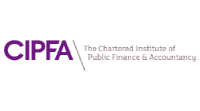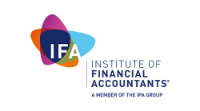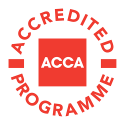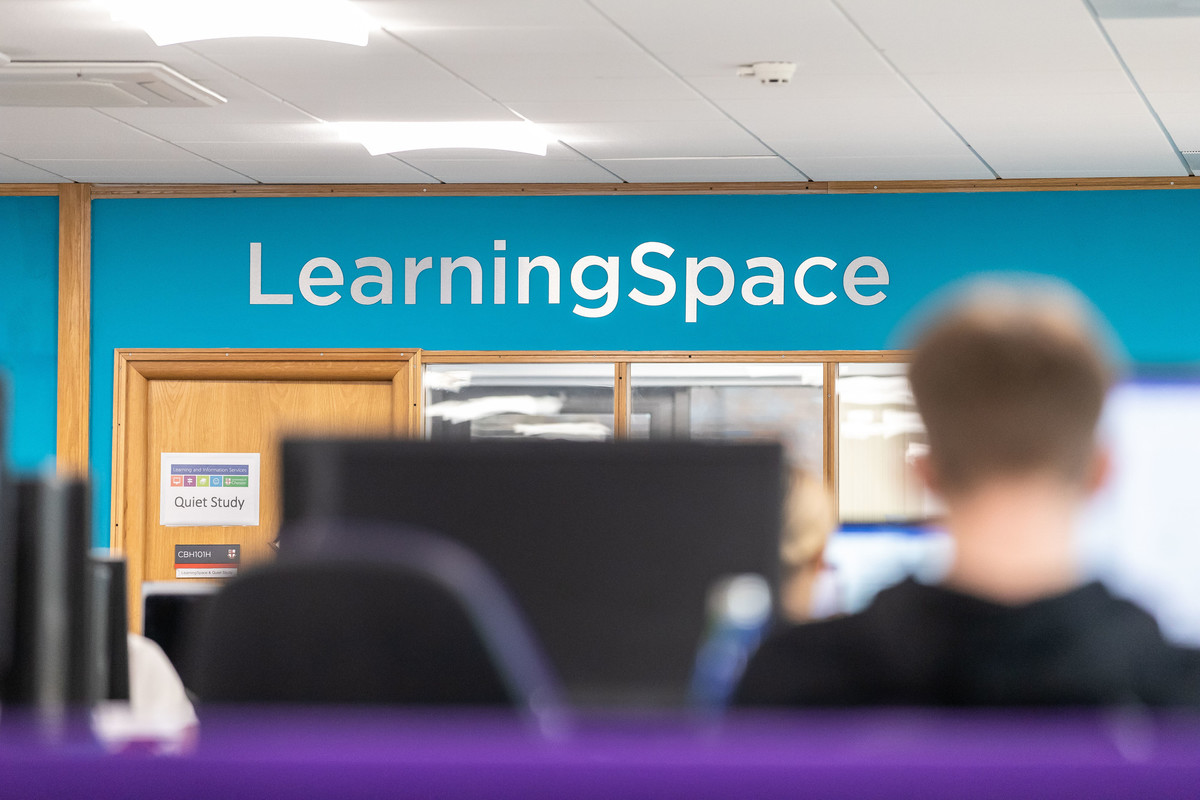Accounting and Finance BSc (Hons)


Available with:
- Foundation Year
- Placement Year
Accreditations







You are viewing Course summary
Course Summary
Begin a dynamic route to a high-flying career by joining our top ranked, professionally accredited Accounting and Finance degree. Delivered by a team committed to making your career aspirations and professional objectives a reality in today’s global economy, your transformation from student to professional accounting graduate really does begin here. You will develop in-demand, accounting and finance skills through practical application and real business experiences.
We put your future career in our Accounting and Finance degree at the heart of our course, with inspiring, professionally orientated learning experiences. You will develop all the skills and knowledge needed for a career in accounting, finance or in a broader business role. Recent graduates have secured accountancy and business roles in a variety of organisations including global corporations, the public sector, and prestigious accountancy firms such as PricewaterhouseCoopers International Limited (PWC) and Deloitte.
The Finance sector is competitive and ever-changing, but we will make sure you are equipped with a professional, transferable skillset to succeed. You will exit the course ready to fulfil your career aspirations, whatever they are, and to make your mark in the world of business.
If you would like to see more of what we’ve been up to and gain an insight into what it will be like to study with Chester Business School at the University of Chester, please feel free to follow us on Facebook, X/Twitter, Instagram and LinkedIn.
What You'llstudy
Module content:
- Reading and writing critically.
- Constructing and evaluating an argument.
- Note-taking techniques for reading and listening.
- Understanding plagiarism and academic integrity.
- Introduction to reflective practice.
- Preparing for, and delivering, powerpoint presentations.
- Referencing and citation.
- Summarising and paraphrasing written sources.
- Literature searching.
- Report writing.
- The culture and expectations of higher education.
- The assessment process including the role of assessment criteria and feedback.
- The nature of research journal publishing.
Whilst much of the content above is generic, students will be encouraged to situate skills within the context of the undergraduate discipline they are entering, which leads to some variation in emphasis for certain skills.
Module aims:
1.To raise awareness of the range of study skills required for successful higher education studies, including the process of academic writing, reading strategies, seminar skills, organisation of time and materials, planning for and meeting deadlines, understanding and responding to feedback.
2. To introduce students to concepts such as plagiarism, academic integrity and appropriate use of artificial intelligence tools.
3. To facilitate an effective transition into higher education by exploring, and providing guidance in, the key elements of successful undergraduate studentship including students' understanding of taking responsibility for their own learning.
4. To teach students how to undertake a literature, visual or data review for their discipline and be able to differentiate between a valid, reliable source and an unsubstantiated or irrelevant source.
Module content:
- Research and planning skills.
- Becoming familiar with topics that comprise their undergraduate degree subject.
- Developing a knowledge base for a discipline of study.
- Identifying areas of interest.
- Application and development of critical analytical skills.
- Development of self-directed study.
- Use of learning resources.
Module aims:
1. To develop students' skills in planning and writing an essay.
2. To familiarise students with the process of tutor supervision for a written piece of work.
3. To give students an opportunity to focus on a topic within their undergraduate degree subject.
4. To write a piece of work that allows the student to broaden and deepen knowledge on a topic of their choice.
5. To prepare and deliver an academic poster presentation outlining the student's research topic.
Module content:
- The 'global student' and the ‘global graduate’
- Introduction to theories of globalization
- Perspectives on economic, political and cultural globalization
- Globalized media, the internet & digital tech.
- Global economy & transnational corporations
- International organisations & social movements
- Migration, multiculturalism and interculturalism
- Introduction to decolonisation & education
- International security and security issues
- Introduction to international relations theory
Module aims:
1. To explore issues of global significance.
2. To develop and apply skills in critical thinking, research and communication and apply these to debates within the module's topics.
3. To deconstruct and reconstruct arguments by researching global issues.
4. To develop an awareness of global justice debates.
Module content:
- Introduction to Marketing Strategies
- Understanding the Marketing Mix (product, price, place and promotion)
- Influences on Target Market & Segmentation
- Marketing events
Module aims:
- To introduce students to a range of Marketing concepts & principles.
- To develop students' understanding of the Marketing Mix in the modern world of business.
- To provide a foundation-level knowledge base of business marketing
Module content:
- Introduction to business functions (including human resources management, operations, marketing & finance)
- Examples of leadership and management
- Corporate social responsibility
- Understanding organisational structures and behaviour
- Introduction to strategy
- Influences on business (including contract law & the formation of contracts)
- Introduction to entrepreneurship
Module aims:
- To introduce students to a range of business functions.
- To develop students' understanding of operational and strategic practices in the modern world of business.
- To provide a foundation-level knowledge base of business and entrepreneurship.
Module content:
- Preparation of Financial Statements (including trading profit and loss statement)
- Presenting graphical information
- Data handling
- Percentages, ratios and proportions
- Analysing business performance
- Procedures & legal requirements
Module aims:
1. To provide a foundation-level knowledge of mathematics in preparation for progression to an undergraduate degree in Business.
2. To introduce students to fundamental concepts within maths using a selection of applications relevant to Business.
3. To introduce foundation-level knowledge in mathematical applications for finance.
You will undertake modules in Management and Financial Accounting, as well as Economics, Law and Quantitative Methods.
Module content:
- Market system & competitive process - demand & supply / price elasticity / pricing / government intervention / market structures / perfect competition / monopoly / public sector
- Economic profit and Accounting profit. Agency theory.
- Consumer behaviour. Output and costs.
- Macroeconomic concepts - national income circular flow of model / trade cycle / public finance / government policy / balance of payments / exchange rate policies / globalisation and economic development/Trade organisations.
Module aims:
1. To enable students to acquire an understanding of the conceptual underpinning of business economics.
2. To identify and apply economic concepts and methods to the exploration of business issues.
3. To develop and undertake business economic analysis, incorporating macroeconomic issues.
Module content:
Conceptual and regulatory framework - accounting records/ users / characteristics / differences between financial and management accounting / terminology / types of organisation / assumptions, policies, conventions and changes in accounting estimates and policies / capital and revenue expenditure/ valuation and revaluation, recognition and measurement of assets / relevance and faithful representation / understandability and verifiability in relation to the provision of financial information / comparability and timeliness/ integrated reporting
Framework of financial statements - legislation/ accounting standards / approaches to creating accounting standards
Accounting systems - books of prime entry/ double entry/ accounting equation/ account balancing / ledger accounts /journal entries/ trial balance / capital & revenue/ accounting for indirect taxes/ accounting for payroll/ non-current asset register/ use of codes in accounting systems
Preparation of accounts for single entities - carriage/ discounts/ sales tax /accruals & prepayments / irrecoverable debts and allowances for receivables/ depreciation/ asset disposal / tangible v intangible assets / inventories/ manufacturing accounts/ income and expenditure accounts/ incomplete records/ issue and redemption of shares and debentures/ adjusted financial statements/ preparation of statement of profit or loss and statement of financial position/ preparation of a statement of cash flows/ statement of comprehensive income / statement of changes in equity
Control of accounting systems - external audit/ internal audit/ accounting errors and correction of errors/ nature, prevention and detection of fraud/ bank reconciliation statements/ petty cash statements under imprest system/ sales and purchase ledger control account reconciliations
Analysing and interpreting financial statements - indicate the problems of using historic information to predict future performance and trends / define and compute relevant financial ratios / explain what aspects of performance specific ratios are intended to assess / analyse and interpret ratios to give an assessment of an entity's performance and financial position / limitations of interpretation techniques
Module aims:
- To equip students with a basic grasp of the underlying principles, concepts and regulations of financial accounting
- To develop the ability to construct accounting records and through employing appropriate systems to create simple financial statements using both manual and computerised approaches
- To develop analytical skills to interpret financial information for a variety of users
Module content:
- Business ethics and ethical conflict
- Corporate governance, controls and corporate social responsibility
- Essential elements of the legal system
- The law of obligations
- Employment law
- The formation and constitution of business organisations
- Capital and the financing of companies
- Management, administration and the regulation of companies
- Insolvency law
- Corporate and fraudulent behaviour
Module aims:
- To understand and explore the theoretical underpinnings and relationships of business ethics, law and corporate governance to organisations
- To develop an understanding of the application of legal, ethical and corporate governance issues to the management of organisation
- To apply knowledge and analysis to specific issues and dilemmas affecting individuals and organisations
Module content:
Context of Management Accounting - purpose of Management Accounting and role of Management Accountants
Cost identification and behaviour - classification of costs /cost measurement / behaviour of costs / overhead costs / absorption costing / marginal and full cost pricing / high low method
Planning - functional budgets / cash budgets / fixed and flexible budgets / standard costs / variance analysis / reconciliation of contribution statements/financial and non-financial performance measures
Control systems - manufacturing accounts / integrated ledgers / job, batch and process costing / financial statements that inform management / managerial reports in a range of organisations
Decision making -contribution / cost-volume-profit analysis / break even charts / relevant costing / make or buy decisions / limiting factors
Module aims:
- To introduce students to the basic theoretical and conceptual underpinning of management accounting
- To examine and demonstrate the application and purpose of management accounting for decision making
- To provide the foundations of management accounting knowledge which will be further developed in BU5007 Management Accounting 2 and BU6015 Management Accounting 3
Module content:
Basic mathematics- use of formulae / percentages & proportions / simple equations linear and quadratic equations /graphs
Probability - simple / conditional / rules of addition and multiplication / expected values / risk & uncertainty
Summarising and analysing data - data & information / tabulation of data / graphs & diagrams / group and ungrouped data / frequency distributions / normal distributions / Pareto / index numbers
Relationship between variables - scatter diagrams and correlation co-efficients / simple regression
Forecasting - time series based graphical analysis / trends in time series / moving averages and linear regression / seasonal factors / additive and multiplicative models / limitations
Financial mathematics - simple and compound interest / present values / annuities & perpetuities / loans and mortgages / sink and saving funds / NPV & IRR calculation and interpretation
Spreadsheets - features and functions of software / use & limitations of software / application
Module aims:
- To introduce students to the basic theoretical underpinning of quantitative techniques
- To examine and demonstrate the application of quantitative techniques including spreadsheets
- To apply quantitative techniques to decision making in organisations
Module content:
This module will use a series of workshops to explore key themes associated with academic and professional development. Students will engage in self-reflection and analysis in order to develop a personal action plan, to be implemented throughout the year. Study and professional skills will dominate the curriculum, offering students rich opportunities to develop.
The topics will include, but are not limited to:
- Academic integrity including academic writing, referencing and responding to feedback
- Research skills - locating, evaluating and using good quality research information.
- Emotional intelligence and self-awareness: your skills, strengths and weaknesses, personality and needs.
- Learning styles and approaches
- Idea generation and problem solving
- Developing effective teams: team dynamics, negotiation and conflict resolution
- Commercial and subject/discipline awareness; understanding the academic and environmental contexts
- Personal management; planning and time management, avoiding stress and tackling assignments/exams
- Managing your professional image; CVs, social media profiles, portfolios
- Personal and professional development planning
- Career awareness and action planning
Module aims:
This module aims to support students in their transition into Higher Education by introducing and developing their understanding of;
- Higher Education expectations including academic research, writing, structure and UoC processes
- Independent learning including curriculum engagement, time management and understanding and using feedback
In addition, the module aims to improve the employability of students by providing opportunities for them to;
- Develop and evidence a range of transferable skills such as teamworking, presentation skills, researching, working to deadlines and problem solving
- Explore and enhance self-awareness through skills auditing, peer/academic reviews and personal and professional action planning
- Identify the qualifications, skills and qualities required to enable them to progress into their chosen career path and articulate any current gaps
The aim is to build on your accounting knowledge, but to also introduce tuition in Corporate Finance and Accounting Software and Information Systems, and to provide the opportunity to develop key employability skills.
Module content:
The traditional academic programme structure is not applicable in relation to this experiential learning intern-ship opportunity. The experiential content is freely structured and determined by negotiation between the student, placement supervisor and host organisation. It is generally informed by the aims and learning outcomes and by the objective of optimising added value for both the host organisation and the student experience.
A placement conference will enable peer to peer sharing of experiential learning permit feedback and allow an analysis of the range of skills and benefits derived from the placement, it will also further develop the construction of learning logs and the portfolio. For those unable to attend, for whatever reason, online via Teams will permit engagement and feedback. In addition, the conference will provide an opportunity to acquire an overview of final year options and dissertation and/or project research.
For those students where costs or other geographical/logistical difficulties render visits, conference attendance or participation via teleconferencing prohibitive, there will be an augmented portfolio of activities to substitute the conference activities.
All students will engage in the drawing up of a learning agreement on acceptance of the placement that will cover a contact plan and agreed learning outcomes with their designated academic tutor and placement coordinator.
Module aims:
- To provide an opportunity for students to apply and enrich their previous theoretical knowledge and understanding of course content through observation in and insights derived from working in an organisation and professional environment.
- To enable students to develop their practical and transferable skills in a business environment and to experience a broad range of tasks and responsibilities in different functional areas.
- To enable students to pursue professional and personal development in a working business environment
- To enable students to recognise the nature of tasks, workloads, management problems and working methods in the working environment.
- To enable students to inform the tasks, problems and scenarios presented in the business environment with theoretical concerns emanating from their studies and research and vice versa.
Module content:
This module builds on knowledge gained from module BU4007 Financial Accounting 1 or equivalent.
Regulation of financial reporting - framework/ GAAP v principles / IASB /IFRSs/ role of external auditing / ethical principles in accounting/ corporate governance/ compare and contrast the approach to corporate governance in different markets / concept of financial and physical capital maintenance / standard setting process
Financial accounting and reporting- single company preparation IAS1 revised /cash flow IAS7/Statement of Profit or Loss and financial position (Balance Sheet) /application of a variety of IASs to a variety of issues including investment properties and non-current assets, impairment / accounting for taxation / non-current assets held for sale and discontinued operations including relevant disclosures / ethics in financial reporting
Management of working capital, cash and short-term finance - short-term finance and cash investment/ evaluation of working capital position of an entity/ analysis of short-term cash position of an entity
Fundamentals of business taxation - rules and regulatory environment/ types of taxation / direct company taxation/ indirect taxation /employee taxation /international taxation / corporation tax and capital tax calculation
Module aims:
- To examine and analyse the principles, concepts and calculations in relation to administration of taxation
- To examine and evaluate the role of regulation in financial reporting and the calculation and presentation of detailed company accounts
- To apply and evaluate the application of International accounting standards to business organisations
Module content:
This module builds on knowledge gained from module BU4009 Management Accounting 1 or equivalent
Cost accounting systems - profit reporting and stock valuation - marginal costing, throughput accounting, activity based costing and absorption costing / environmental costing
Standard costing and variance analysis - sales and cost variances, mix and yield variances, planning and operational variances, variances for service industries
Budgeting - different approaches to budgeting / purpose of budgeting /mechanics of budget construction /forecasting techniques / budgets as a control system / behavioural considerations
Short-term decision making - relevant cash flows / pricing decisions / break-even analysis for multiple products / product mix decisions / joint costs / linear programming the graphical method
Dealing with risk and uncertainty - attitudes to risk / sensitivity analysis / decision trees / probabilistic models / expected values / payoff tables
Module aims:
- To examine and analyse management accounting principles and techniques that can be used to evaluate and control the present and projected performance of an organisation
- To enable students to develop analytical skills through the application of management accounting tools to theoretical situations
- This module will develop and build on knowledge gained from BU4009 Management accounting 1 and will provide further foundation for BU6015 Management Accounting 3
Module content:
This module examines 5 broad organisational themes :
Introduction to the Organisation
- Organisational structures and its stakeholders
- Corporate governance, ethics and corporate social responsibility
The Finance Function
- Finance function & its shape and structure in organisations
- The finance related activities which are fundamental to managing the Finance Function for organisational value creation
Technologies in a Digital World
- Forth Industrial revolution - technologies that affect business and finance
- Ethics of technology usage
Data and information in a Digital World
- The use of data to produce insights, for communications, decision-making and connect different activities in an organisation to create and preserve value.
Finance interacting with the Organisation
Finance in relation to operations processes, human resource management, marketing and IT
Module aims:
The purpose of this module is to provide students with an understanding of organisation management in the fourth industrial revolution through the lens of a finance manager. Students are expected to develop a broad and holistic understanding of the finance functions in the digital world, how technologies and finance links to the various business activities of an organisation for value creation.
Module content:
This module covers the key topics including:
- Software in practice (e.g. Sage, Xero,
etc)
- Concepts of digital accounting system
- Information system and business solutions
- Data analysis and business modelling
- Excel for business analysis
- Database concept and practice (e.g Access)
- Understanding the Accounting and Financial sector
- Careers and Employability (e.g. psychometric testing, assessment centre,
etc)
Module aims:
To develop students' ability to apply the techniques, skills and knowledge in relation to accounting software and information systems in accounting and finance industry. In addition, to help students be equipped and well prepared for the professional field in the digital age.
Module content:
1 Financial management function - nature and purpose of financial management / financial objectives and relationship with corporate strategy / organisational objectives including in not-for-profit organisations / stakeholders and impact on corporate objectives / key decisions and linkages of financial management / modelling and forecasting, cash flows, variable, sensitivity / financing / shareholder value / financial reporting
2 Financial management environment – economic environment for business / nature and role of financial markets and institutions
3 Working capital management - nature, elements and importance of working capital / management of inventories, accounts receivable, accounts payable and cash / determining working capital needs and funding strategies
4 Investment appraisal - evaluation of investment opportunities including investment appraisal techniques / inflation and taxation in investment appraisal / adjusting for risk and uncertainty in investment appraisal / rates of return / lease or buy decision / asset replacement / capital rationing
5 Business finance - sources of, and raising business finance / estimating the cost of capital, including WACC / sources of finance and their relative costs / capital structure theories and practical considerations / financing mechanisms effect on Balance Sheet structure / finance for small and medium-sized entities
6 Business valuations - nature and purpose of the valuation of business and financial assets / models for the valuation of shares / the valuation of debt and other financial assets / Efficient Market Hypothesis (EMH) and practical considerations in the valuation of shares
Module aims:
To identify the principal concepts in the theory and practice of strategic financial management
To analyse and evaluate financial strategies through the application of appropriate tools in relation to management needs and policies
To synthesise argument and consolidate knowledge by the presentation of strategic financial decisions, in a coherent format, suitable for relevant users
Module content:
Part A:
Preparation for Experiential Overseas Learning will take place at the university of Chester during level 5 and will include:
- The multiple facets of Global citizenship
- Ethical engagement and practice
- Cross-cultural issues and sensitivity
- Intercultural communication
Theories, models and strategies of learning
- Theories and models Intercultural competence
- Theories and models of Integration and Multiculturalism
- Critical thinking skills and models of Reflection
- Experiential learning models
- Self-directed experiential learning
Personal and placement-related skills
- Enhanced independence
- Improved command of multicultural behaviour
- Increased knowledge and confidence in their individual facets of personal identity
- Effective time management and organisational skills
- Project management – working away from University and independent study
- Self-management and personal development
- Team building and team work
Part B: Overseas
Students will engage in experiential learning activities overseas for at least 150 hours
Module aims:
The purpose of this module is to enhance students’ prospects of completing an overseas placement to the best of their ability consequently it aims to:
- To equip participants with appropriate knowledge and skills to study or work in a different cultural, linguistic and/or social environment; enhancing ethical, cultural and intercultural awareness.
- To enhance students understanding of the ethical issues related to living and working abroad.
- To increase students Global Citizenship skills
- To provide an opportunity for students to reflect critically on their experience of living and learning within an unfamiliar culture, to their 'home' culture or ethnic group.
To challenge students to learn about themselves as global citizens in terms of life skills, career choices and academic development outside the classroom.
Module content:
Preparation for the year abroad will take place in Chester during level 5 and will include:
- Cross-cultural issues and sensitivity
- Host-country orientation, study methods– economic, political and social reality of the country
- Orientation specific to exchange – health, education, gender issues
- The United Nations Sustainable Development Goals
- Practical matters relating to living and studying in the wider world
Theories, models and strategies of learning
- Critical thinking skills, experiential learning and models of reflection
Personal and placement-related transversal skills
- Effective self-motivation and independent resourcefulness
- Effective time management and organisational skills
- Project management – working away from University and independent study
- Self-management and personal development
Whilst abroad:
Students will undertake study at one of UoC’s partner universities; it is expected that students will choose a series of modules at the university abroad, which equal a full-time study load. This must be agreed by the host institution and the International Tutor. Students must supply details of their courses/modules on a learning agreement within 4 weeks of arrival at the host university, note students who fail to supply this within 4 weeks may have the opportunity withdrawn.
Module aims:
- To experience academic life in country outside of the EU, enhancing cultural and intercultural awareness and increasing transversal skills.
- To reflect on the impact of the experience in their destination on one’s own personal, academic and professional development.
- To engage with the experience of study at a partner university to gain extensive first-hand knowledge and understanding of the relevant society from the perspective of the resident.
- To further develop independent learning techniques.
- To foster critical evaluation.
Module content:
- The multiple facets of global citizenship
- Ethical engagement and practice
- The United Nations Sustainable Development Goals
- Cross-cultural issues and sensitivity
- Intercultural communication
- Culture shock
- Cultural adjustment
- Self- assessment of needs: identification of the range of transferable skills, competencies and attitudes employees need and employers expect graduates to possess-with a strong focus on understanding the intercultural competencies (ICC) needed to live and work abroad.
- Critical analysis/evaluation of individual requirements in relation to culture/cultural adjustment/culture shock/visas/medical.
- Critical analysis/evaluation of skills already acquired in relation to key skills related to ICC.
- Devising strategies to improve one’s own prospects of working abroad in the future.
- Devising an action plan to address gaps in transferable skills based on organisational analysis and sector opportunities.
Module aims:
This module promotes a reflective and critical approach to interculturality and aims to enhance students’ prospects of gaining overseas graduate employment, which will enable them to:
- Examine and evaluate a chosen aspect of the society of a target country
- Enhance cultural and intercultural awareness and further develop related skills.
- Articulate clearly their career plans and take steps to prepare for their first paid overseas graduate role,
- Take responsibility for their own learning and acquisition of identified employability skills,
- Articulate, orally and in writing, their findings and their employability skills.
Module content:
Pre-placement:
- Structured approaches to researching, selecting and securing a suitable work placement relevant to the student’s interests and career aspirations*.
- Writing an effective CV. Constructing a letter of application.*
- Interview skills.*
*Note: Students are required to undertake these pre-placement tasks during term 1 level 5, as part of the placement acquisition process and will be supported by the Work Based Learning team and the Careers and Employability department.
Induction Programme and Placement:
- The organisational context: research-informed analysis of the placement organisation’s aims, structure, culture.
- Self- assessment of needs: identification of the range of transferable skills, competencies and attitudes employees need and employers expect graduates to possess. (Employability Skills: e.g. verbal and written communication, analytical / problem solving capabilities; self-management; team working behaviours; negotiation skills; influencing people; positive attitude, resilience, building rapport).
- Devising a strategy for integrating into the workplace and work based teams
- Completion of online assignment tasks covering sourcing and obtaining placement; health and safety procedures in general; general workplace integrity; placement requirements.
During and post-placement: Learning effectively in and from the workplace:-
- Devising and implementing strategies to improve own approach and performance
- Critical analysis/evaluation of approach to skill development and performance in the workplace;
- Influencing the Placement Provider’s appraisal;
- Devising an action plan to develop gaps in transferable skills based on the placement experiences;
Module aims:
This module aims to enhance students’ prospects of gaining graduate level employment through engagement with a University approved work placement**, which will enable them to:
- Develop their understanding of workplace practice and lifelong learning;
- Enhance their work readiness and employability prospects through development of transferable skills;
- Take responsibility for their own learning and acquisition of workplace employability skills;
- Articulate, in writing, their employability skills.
Module content:
- The organisational context: research-informed analysis of the sector’s role, development opportunities or career paths.
- Self- assessment of needs: identification of the range of transferable skills, competencies and attitudes employees need and employers expect graduates to possess. (Employability Skills: e.g. verbal and written communication, analytical / problem solving capabilities; self-management; team working behaviours; negotiation skills; influencing people; developing a positive work attitude, resilience, building rapport with co-workers).
- Devising strategies to improve one’s own career.
- Critical analysis/evaluation of skills already acquired.
- Devising an action plan to address gaps in transferable skills based on organisational analysis and sector opportunities.
Module aims:
This module aims to enhance students’ prospects of gaining graduate level employment, which will enable them to:-
- Enhance their work readiness and employability prospects through identifying relevant transferable skills for their chosen career path,
- Clearly articulate their career plans and take steps to prepare for their first graduate role,
- Take responsibility for their own learning and acquisition of workplace employability skills,
- Articulate, in writing, their employability skills.
Further development of accounting modules, and optional modules are also available to suit your chosen career path.
Module content:
This module builds on knowledge gained from module BU5006 Financial Accounting 2 or equivalent
Audit framework and regulation- concept of audit, statutory audits, regulatory environment and corporate governance and ethics
Internal audit- need and elements of corporate governance, external v internal audit , scope of internal audit, outsourcing and nature and purpose of internal audit
Planning and risk assessment - principles of risk assessment in relation to audit, entity knowledge, material misstatement and fraud, procedures and audit planning documentation and third party verification
Internal control - systems, access, transaction cycles, tests of control, evaluation of internal control and communication
Audit evidence - auditor assertion and testing, procedures, specific items auditing, audit sampling, computer based auditing and not for profit organisations
Audit review - subsequent events, going concern, management representations, finalisation and review
Reporting - audit reports , reports to management and internal audit reports
Module aims:
- To provide students with a theoretical understanding of the nature and objectives of audit and general auditing practice.
- To develop an understanding of how auditing and internal control systems are applied in business organisations and the added value given to the decision making processes of organisations by quality auditing systems.
- To ensure students have an underpinning theoretical knowledge of the regulatory framework of auditing and its application to the operation of organisational systems.
Module content:
This module builds on knowledge gained from module BU5006 Financial Accounting 2 -performance operations or equivalent
Sources of long-term finance - characteristics of ordinary and preference shares and different types of long-term debt/ operating of the stock and bond markets/ share and bond issues/ role of advisors/ cost of equity using dividend valuation model/ post-tax cost of bank borrowings/ yield to maturity of bonds and post-tax cost of bonds/ post-tax cost of convertible bonds up to and including conversion/ WACC and its use.
Group financial statements - full consolidated statements (single & group) / capital schemes / currency/ disclosure of interests in other entities/ need for and nature of disclosures of contingent assets and liabilities/ recognition and measurement of revenue, operating and finance leases including discussion of substance over form, financial instruments, provisions, contingent liabilities and contingent assets, share-based payments and provision for deferred taxation / ethical selection and adoption of relevant accounting policies and accounting estimates / additional acquisition in the period/ calculation of gain or loss on disposal of a controlling interest in a subsidiary in the year/ adjustment to parent's equity/ consolidating a foreign subsidiary and calculation of foreign exchanges gains and losses/ impact of indirect effective holdings on preparation of group financial statements/ disclosure of transactions between related parties / basic and diluted earnings per share calculations / revenue definition, recognition, measurement, accounting and application
Analysis & Interpretation of accounts - ratio application & interpretation including EPS /segmentation / limitations / advise on action that could be taken to improve an entity's financial performance and financial position taking into account ethical considerations and internal and external constraints
Contemporary developments - stakeholder information demands / environmental and social accounting / non- financial measures / Human resource accounting/ IFRS & GAAP convergence
Module aims:
- To explore and assess accounting principles and evaluate their relevance to preparation of accounting treatments in organisations taking into consideration contemporary issues
- To undertake complex calculations to prepare consolidated accounts
- To apply and critically evaluate performance and financial position of organisations using ratios
Module content:
This module builds on knowledge gained from module BU5007 Management Accounting 2 or equivalent
Long-term decision making - relevant cash flows, investment decision making, investment appraisal techniques, Payback, ARR, IRR, NPV, annuities, profitability index, capital rationing, pricing strategies
Cost planning and analysis for competitive advantage - activity based costing, activity based management, Throughout accounting, JIT, TQM, target costing, value analysis, Kaizen costing, life cycle costing, the value chain, direct customer profitability, distribution channel profitability, pricing - elasticity of demand, profit maximisation pricing, pricing strategies
Management control and risk - sensitivity analysis, risk and uncertainty, decision trees, probabilistic models, Bayes Theorem, TARA framework, business risk, ethical implications, Big Data, data analytics
Control and performance measurement of responsibility centres - decision making in different structures, key metrics, benchmarking, Balanced Scorecards, FPIs and NFPIs, analysis of Return on Investment, Residual Income and Economic Value Added and transfer pricing, performance in not for profit organisations
Module aims:
- To examine and analyse management accounting principles and techniques that can be used in long term decision making
- To enable students to build on analytical skills through the application of management accounting tools to theoretical situations
- To develop and build on knowledge gained from BU4009 Management Accounting 1 and BU5007 Management Accounting 2
Module content:
This module builds on knowledge gained from module BU5006 Financial Accounting 2 or equivalent.
The module content covers the following areas:
- The UK Tax system and its administration;
- Income Tax and NIC liabilities;
- Chargeable gains for individuals;
- Inheritance Tax;
- Corporation Tax liabilities; and
- Value Added Tax (VAT).
Module aims:
- To critically evaluate the theoretical and practical role and scope of taxation in relation to contemporary fiscal policies and the ensuing taxation systems
- To undertake complex computations relating to taxation issues in a variety of contexts.
- To critically examine the relevance of taxation to decision making for organisations and individuals.
Module content:
- Introduction to the research process
- The importance of research justification and scoping
- Methodological foundations of research
- Moral and ethical issues in research
- Effective project management
- Rigour and feasibility issues in research
- Quantitative methodology: Research design, data collection and analysis
- Qualitative methodology: Research design, data collection and analysis
- Writing and reporting research in context
Module aims:
The Management Research Project aims to draw together specific subject knowledge and skills, with a particular focus on improved self-awareness and preparation for business, by challenging students for personal and academic development to management positions and and to employability on general.
- To undertake a research project that is 'scoped and framed' within a required degree programme of study.
- To enable the student to design and conduct appropriate in-depth research in an elected area of study.
- To provide the student with the opportunity to acquire, consolidate and apply theoretical knowledge, methodologies, and research approaches in a ‘real world’ environment.
- To enable the student to develop and utilise skills in critical investigation; analysis and synthesis of evidence; reflection and autonomous learning.
Module content:
- Financial Statement Analysis: Special emphasis on ratio analysis and other techniques on the financial statements of single companies and / or groups, including the use of cash to measure return; the interpretation of financial statements of singles companies and / or groups and the explanation of the implication of accounting standards on the financial statements
- Valuation: The use and appraisal of methods of equity analysis for different types of business entity and industry sectors, indicating each method’s problems and limitations
- Debt and Equity: Terms, rights, conditions of use and the factors concerning valuation of various instruments; unquoted sources of finance including its appropriateness for different businesses and ventures; financing a company’s needs through different finance options such as rights issues, placings and vendor placings; dividend policy considerations and their impact on issuers and stakeholders; financing options for a company’s pension fund deficit; use of derivatives in debt and equity and the incorporation of these instruments in financing options
- Mergers, Acquisitions and Disposals – including international businesses: Commercial and financial rationales for acquisitions and disposals; disposal processes; detailed stages of an acquisition; detailed processes and considerations of mergers, acquisitions and disposals; advanced valuation; financial effect of mergers and acquisitions on the larger group; creation of shareholder value from mergers and acquisitions; restructuring; preparing for a sale; and due diligence
- Corporate Strategy: Analysis of business entities and evaluation of strategy including SWOT and PEST analysis and Porter’s 5 Forces; Advising on business strategy, growth by acquisition versus organic growth, disposals and the disposal process and public and private partnerships
- Corporate Performance and Reconstructions: Analysis and evaluation of information relating to business entities including advanced corporate performance, including Economic Value Added (EVA); reconstructions and business recovery; schemes of arrangement and the role of private equity
Module aims:
The purpose of this module is to :
- Provide students with a thorough understanding of techniques, theories and issues found in practical corporate finance situations.
- Enhancing the students’ capabilities and competency in undertaking a high level analysis of financial statements; valuing a range of undertakings across industry sectors; conducting an advanced analysis of debt and equity requirements in given situations;
- Examine and evaluate how and whether value is created in both domestic and international mergers, disposals and acquisitions; corporate strategy and corporate performance and reconstructions.
Module content:
The purpose of the module is to enhance students' understanding of three key drivers of Managing Business Performance
1) Business in the 21st century is characterised by disruptions to business models by new entrants and incumbents who seek superior performance and competitive advantage. New business and operating models can be developed to improve the performance of organisations and understanding the business model as a framework to understand and manage how to create value is critical.
2) Human capital is one of the key intangible assets of organisations in an age where intangible assets are the dominant means by which organisations create and preserve value. Leadership is a crucial means for managing individual performance and the relationships between people to best achieve organisational goals.
3) Managing projects have become the means by which organisations execute their strategies and understanding of project management concepts and techniques to implement organisational goals and strategies effectively and efficiently.
To address these drivers , the key themes on the module are:
Business models and value creation
- Introduction to strategy and strategic management
- Approaches to strategy formulation
- Ecosystems within organisations
- Business models - value, activities, stakeholders
- Disruption and digital operating models
Managing people performance
- Leadership and management and the role of power and authority
- Performance Management from an internal and external perspective
- Coaching and mentoring
- Equality and diversity, and behavioural aspects of management control
- Organisational culture and how this impacts on organisations
- Building, leading and managing effective teams
- Communication, negotiation and managing conflict within the workplace
Managing Projects
- Concepts and themes of projects and project management
- The role of the project manager
- Different stages/phases in a project lifecycle
- Tools and techniques used in project management
- Management and leadership issues associated with projects, including how to communicate with and manage key interest groups/stakeholders
Module aims:
The aims of this module are to :
- Develop a critical understanding of business ecosystems, business model formulation and disruption as part of the strategic management process
- Introduce, critically examine and evaluate a range of concepts, models, tools and techniques associated with leading and managing people and organisational relationships
- Develop the ability to critically discuss, apply and assess the concepts involved in leading and managing projects
Module content:
The module will enable students enhance their Ms Excel skills through the use of advanced spreadsheet modelling techniques available for financial analysis. It will build upon key concepts captured in Finance and Accounting modules such as BU4002
(Finance for Managers), BU4010 (Quantitative Techniques in Finance), BU5032 (Corporate Finance), BU5016
(Financial Decision Making). These include:
Financial Data - databases (such as FAME and Yahoo Finance), types of financial data with emphasis on big data, ethics in data handling, annual reports and other opensource
Data Visualisation Techniques in Excel-creation of dashboards using pivot tables, lookups and logical statements, use financial ratios to conduct performance analysis of companies with data on available databases.
Financial Decision Making in Excel-capital investment appraisal techniques (NPV and IRR), What if Analysis, Loan Amortisation, Break-Even Analysis, Cost of Capital (special emphasis on WACC through curvilinear regression)
Financial Statistics in Excel - use the 'Analysis ToolPak' - descriptive statistics (mean, median, mode, standard deviation and variance), Anova (single factor, 'with and without' replication), correlations, regressions, T-Test, and solver (for linear programming).
Financial Markets in Excel - market sensitivity (beta estimation), portfolio diversification (variance and covariance matrix), market reaction to announcement (event study-single and multiple events), market efficiency (use time series models such auto-regression and moving average concepts).
Module aims:
Equip students with the relevant practical skills through the application of advanced Ms Excel techniques, to analyse financial variables to address complex financial problems.
Provide students with the critical skills required to collect and analyse financial data; and its presentation by means of relevant Ms Excel Data Visualisation techniques to facilitate the process of financial decision making.
Module content:
Students will ideally have studied some finance or accounting prior to undertaking this module, for example BU4002, BU4010 or BU5016
- The international financial environment: The nature, concept and financial structure of Multinational corporation
(MNCs), the economic environment and the influence of the international flow of funds - The background of international financial markets
- Currency Derivatives and Hedging (Hedging techniques for foreign currency risk and interest rate risk)
- Exchange rate determinants and behaviour
- Exchange rate risk measurement and management
- Long term asset and liability management - Foreign Direct Investment / country risk analysis/Long term financing - multinational capital budgeting, cost of capital and capital structure
- Short term asset and liability management –financing international trade, short term financing , international cash management
Module aims:
The purpose of this module is to :
- critically evaluate the international financial environment of a multinational corporation, including financial institutions, financial markets and exchange rate systems.
- critically examine and evaluate the principal concepts in the theory and practice of international financial management
- analyse, apply and evaluate financial strategies through application of relevant analytical tools to examine and assess major issues and developments in international financial management
- provide a critical understanding of the principles of risk exposures and the management of its international financial operations
Your learning and teaching will primarily take place in workshops made up of small groups, where you will feel part of a community of students and where you will be supported and guided by professionally qualified and trained lecturers. Workshops give an opportunity to practise and develop technical knowledge and skills.
Beyond the Classroom
On this course, you have the opportunity to spend five weeks working for a host organisation via our innovative Work Based Learning module. You’ll have the chance to test-drive a future career, boost your CV and gain real work experience.
On this course, you’ll have the opportunity to undertake an Experiential Learning module, where you’ll apply what you’ve learnt on the course to real life scenarios and projects.
Our Experiential Overseas Learning module offers a unique opportunity to participate in a short-term placement around the world.
This course offers the exciting opportunity to study abroad for a full academic year at one of our bilateral exchange partners or through ISEP (International Student Exchange Programs), a network of over 300 additional higher education institutions worldwide.
Entry Requirements
112 UCAS Points
|
UCAS Tariff |
112 points |
|
GCE A Level |
Typical offer – BCC-BBC |
|
BTEC |
BTEC Extended Diploma: DMM |
|
International Baccalaureate |
26 points |
|
Irish / Scottish Highers |
Irish Highers: H3 H3 H3 H3 H4 Scottish Highers: BBBB |
|
Access requirements |
Access to HE Diploma, to include 45 credits at level 3, of which 30 must be at Merit or above |
|
T Level |
T Level - Merit |
|
OCR Cambridge Technicals |
OCR Extended Diploma: DMM |
|
Extra Information |
Welsh Baccalaureate Advanced and A level General Studies will be recognised in our offer. We will also consider a combination of A Levels and BTECs/OCRs. A GCSE grade C/4 (or above) in Mathematics is required |
Students from countries outside the UK are expected to have entry qualifications roughly equivalent to UK A Level for undergraduate study and British Bachelor's degree (or equivalent) for postgraduate study. To help you to interpret these equivalents, please click on your country of residence to see the corresponding entry qualifications, along with information about your local representatives, events, information and contacts.
We accept a wide range of qualifications and consider all applications individually on merit. We may also consider appropriate work experience.
For more information on our entry requirements, please visit International Entry Requirements
72 UCAS Points
|
UCAS Tariff |
72 points |
|
GCE A Level |
72 UCAS points from GCE A Levels to include grade D in at least one subject |
|
BTEC |
BTEC Extended Diploma: MMP |
|
International Baccalaureate |
24 points |
|
Irish / Scottish Highers |
Irish Highers: H4 H4 H4 H4 H4 Scottish Highers: CCDD |
|
Access requirements |
Access to HE Diploma – Pass Overall |
|
T Level |
T Level - Pass (D or E on the core) |
|
OCR Cambridge Technicals |
OCR Extended Diploma: MMP |
|
Extra Information |
Welsh Baccalaureate Advanced and A level General Studies will be recognised in our offer. We will also consider a combination of A Levels and BTECs/OCRs. A GCSE grade C/4 (or above) in Mathematics is required. If you are a mature student (21 or over) and have been out of education for a while or do not have experience or qualifications at Level 3 (equivalent to A Levels), then our Foundation Year courses will help you to develop the skills and knowledge you will need to succeed in your chosen degree. |
Fees and Funding
£9,250 per year (2024/25)
Our full-time undergraduate tuition fees for Home students entering University in 2024/25 are £9,250 a year, or £1,540 per 20-credit module for part-time study.
The University may increase these fees at the start of each subsequent year of your course in line with inflation at that time, as measured by the Retail Price Index. These fee levels and increases are subject to any necessary government, and other regulatory, approvals.
Students from the UK, Isle of Man, Guernsey, Jersey and the Republic of Ireland are treated as Home students for tuition fee purposes.
Following the UK’s exit from the EU, students from countries in the European Economic Area and the EU starting in or after the 2021/22 academic year will pay International Tuition Fees.
Students who have been granted Settled Status may be eligible for Home Fee Status and if eligible will be able to apply for Tuition Fee Loans and Maintenance Loans.
Students who have been granted Pre-settled Status may be eligible for Home Fee Status and if eligible will be able to apply for Tuition Fee Loans.
£13,950 per year (2024/25)
The tuition fees for international students studying Undergraduate programmes in 2024/25 are £13,950.
This fee is set for each year of study. All undergraduate students are eligible for international and merit-based scholarships which are applicable to each year of study.
For more information, go to our International Fees, Scholarship and Finance section.
Irish Nationals living in the UK or ROI are treated as Home students for Tuition Fee Purposes.
Your course will involve additional costs not covered by your tuition fees. This may include books, printing, photocopying, educational stationery and related materials, specialist clothing, travel to placements, optional field trips and software. Compulsory field trips are covered by your tuition fees.
If you are living away from home during your time at university, you will need to cover costs such as accommodation, food, travel and bills.
Your Future Career
Job Prospects
A number of our graduates have entered the accounting profession by gaining training contracts with accounting firms including the ‘Big 4’, leading to ACA qualification. Graduates have also joined a variety of organisations in financial and business roles and as graduate trainees, leading to CIMA, ACCA and CIPFA qualifications.
Progression options
- Accounting MSc
- Banking and Finance MSc
- International Business MSc
- International Finance MSc
- MSc / PGDip / PGCert
- Master of Business Administration MBA
Careers service
The University has an award-winning Careers and Employability service which provides a variety of employability-enhancing experiences; through the curriculum, through employer contact, tailored group sessions, individual information, advice and guidance.
Careers and Employability aims to deliver a service which is inclusive, impartial, welcoming, informed and tailored to your personal goals and aspirations, to enable you to develop as an individual and contribute to the business and community in which you will live and work.
We are here to help you plan your future, make the most of your time at University and to enhance your employability. We provide access to part-time jobs, extra-curricular employability-enhancing workshops and offer practical one-to-one help with career planning, including help with CVs, applications and mock interviews. We also deliver group sessions on career planning within each course and we have a wide range of extensive information covering graduate jobs and postgraduate study.


















